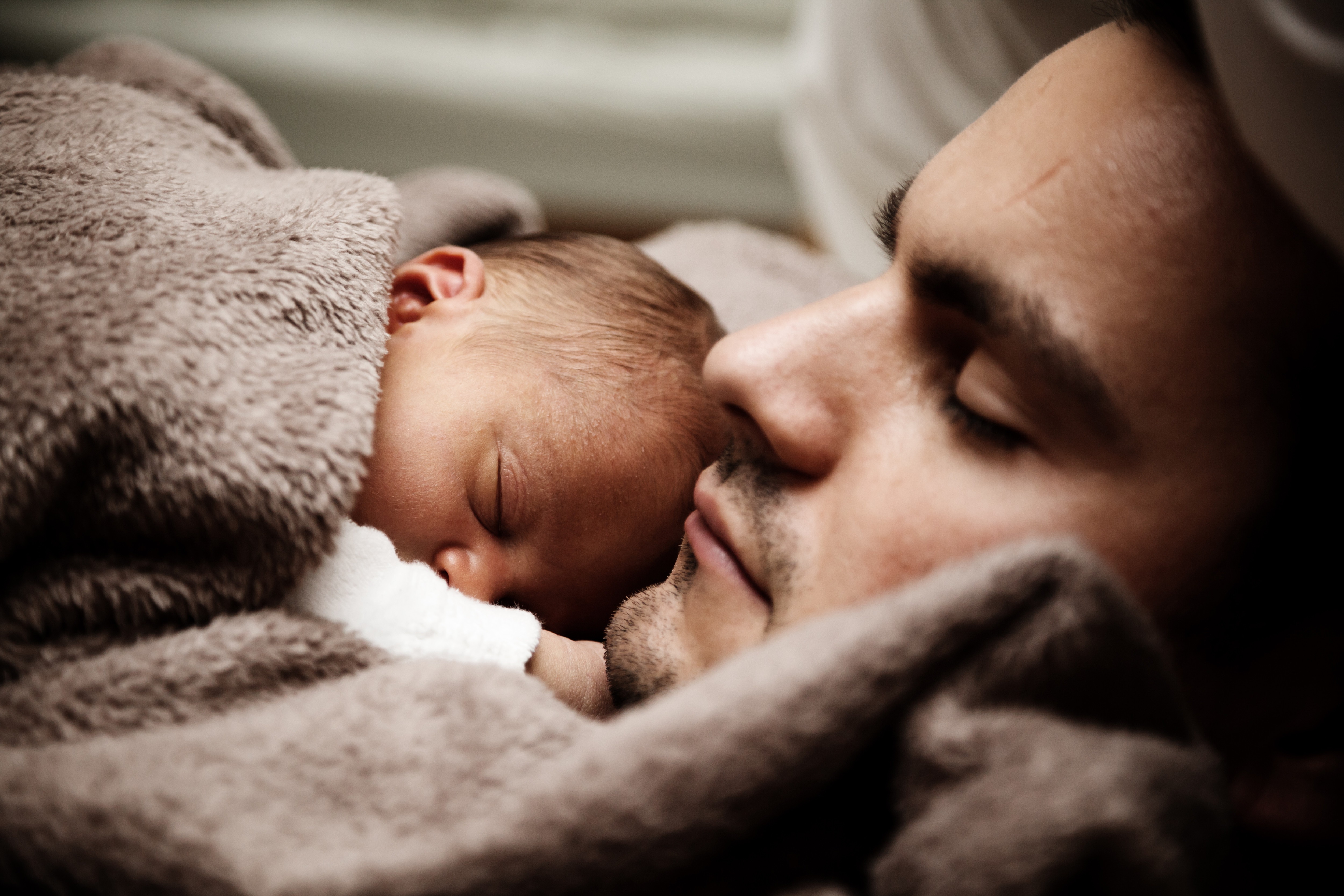What Should You Expect as a New Dad? Society and Reality May Have Different Ideas
On a recent episode of the HGTV program House Hunters filmed in Des Moines, a beaming expectant mother smiled at the camera and, responding to a point of disagreement with her husband, exclaimed, “I’m pregnant and I get what I want.” More than a few people would suggest—not entirely without validity—that this is the only recommendation that an expecting dad should follow.
But seriously, becoming a father for the first time brings many additional responsibilities—practical and emotional—that require a bit of extra thought and planning. Basically, adapting to life as a new father requires a conceptual shift, along with ensuring that the practical demands of a new family are met while minimizing stress. One key thing to prepare for is that a wife/spouse will not be able to focus nearly as much on a new father as before. Many men are left feeling someone bereft after a baby; a mother has far less time to focus on her husband, and even if she does have time, she is far more likely to be exhausted and “touched out–” tired of having an infant so close by all the time.
New-Dad-hood is a Great time to Play to Your Strengths and Develop New Skills
For men who are less inclined to be perceptive about their partner’s emotional needs, fatherhood is a perfect time to become a bit more empathetic in terms of how their partner views their responsibilities. After pregnancy, women’s’ hormonal, physical, and behavioral (sleep, diet, etc.) changes are usually very apparent, so there are obvious signals for a man to respond to. Men also experience changes after a baby arrives, although in less obvious ways.
Stepping into a new role as father requires an approach that reevaluates the workload involved with having a new baby, while maintaining a man’s identity and interests. As demanding as new fatherhood is, men should be aware that keeping their interests and identity intact is essential to being a good partner and father.
Two plus one equals ?
Men who are very happy as a couple may have a tendency to underestimate or misjudge the impact that a new baby can have. Without children, couples have limitless freedom and can set their own agendas. Babies, however, require structure and loads of attention, particularly from the mother, and this can be stressful for men who are not prepared.
Other men may be fearful of the impact of a new baby. Existing stressors—from work, finances, and relationships, can be exacerbated once a baby arrives. Being too reticent about the arrival of a baby can hinder a man’s ability to provide the extra support and help his partner needs right after giving birth. It is also vital to be aware of signs of depression like tearfulness, changes in eating habits, loss of sexual energy, and a sense of worthlessness, and to seek out professional help if these become problematic.
Create a Plan
While you don’t need a formal plan for a new baby, it can help to discuss how specific household chores and responsibilities will be divided among partners. One observer of the domestic scene pithily remarked that if it seems like you are doing 90% of the work, that is about right since there is 180% to do once a baby arrives.
Communication between partners, something that is always important, becomes critical once a baby comes around. In general, men respond better to direct requests, whereas women are inclined to note that something needs to be done with the expectation (or hope) that her partner takes the cue. Focusing on specifics tends to be a good strategy post-baby arrival.
My name is Amanda Itzkoff, MD. I am a New York City based Psychiatrist and Assistant Professor at Mount Sinai Medical Center.
For additional information, please feel free to email our office at Amanda.Itzkoff@gmail.com. To schedule an appointment, call our offices at 917-609-4990.
Be Well,
Dr. Amanda Itzkoff

